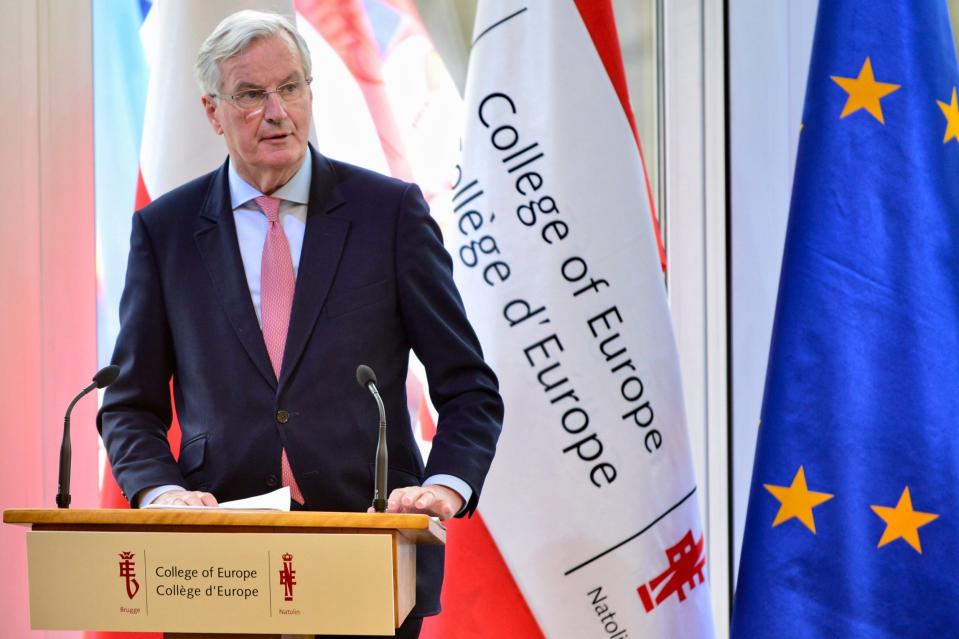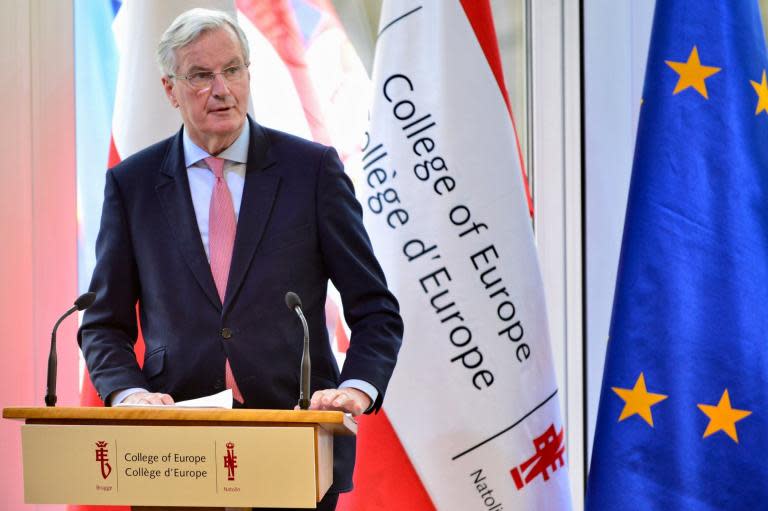No-deal Brexit ‘really likely’, says top EU Brexit advisor
A no-deal Brexit is “really a likely scenario”, one of Michel Barnier’s most senior advisors has warned.
Stefaan De Rynck, a European Commission official who works closely with the EU’s chief negotiator, said a no-deal was the “default” and that one could happen based on the way MPs are acting.
The comments come as Mr Barnier himself, speaking elsewhere on Friday, said the EU would be open to negotiating a “permanent customs union” with the UK if it wanted one.
Mr De Rynck said: “The no-deal today... is a likely scenario. Listening to what a number of MPs are saying in public broadcasts, or in interviews, it is really a likely scenario.”
Speaking at a conference in London organised by The UK in a Changing Europe think tank, Mr De Rynck added: “We will see what happens in the House of Commons today - in what scenario we are.
“We need to conclude this process now in a way that avoids a no-deal. If the process does not conclude, no-deal remains a default scenario."
An hour later Mr Barnier addressed students at the College of Europe campus in Warsaw. He said the UK needed to say what it wanted if there was no majority in the vote today by 12 April.
The EU’s chief negotiator was commenting for the first time in public after indicative votes in the Commons showed a customs union within touching distance of a majority in parliament.
Echoing Mr De Rynck, Mr Barnier added: “Without a positive choice, the default option will become a no-deal, which has become more likely. It was never our scenario but the EU27 is now prepared.”
The two events came ahead of a third vote on the withdrawal agreement in Westminster today.
For the third vote, the Government split the withdrawal agreement – a binding international treaty – from a separate document spelling out the future relationship, in the hope that it would encourage more MPs to vote for it.
A European Commission spokesperson confirmed to reporters in Brussels on Friday that just passing the withdrawal agreement would be enough to bring about an orderly withdrawal, describing it as “both necessary and sufficient”.
Under the UK law both documents have to be agreed, however – leaving a potentially messy legal situation.


